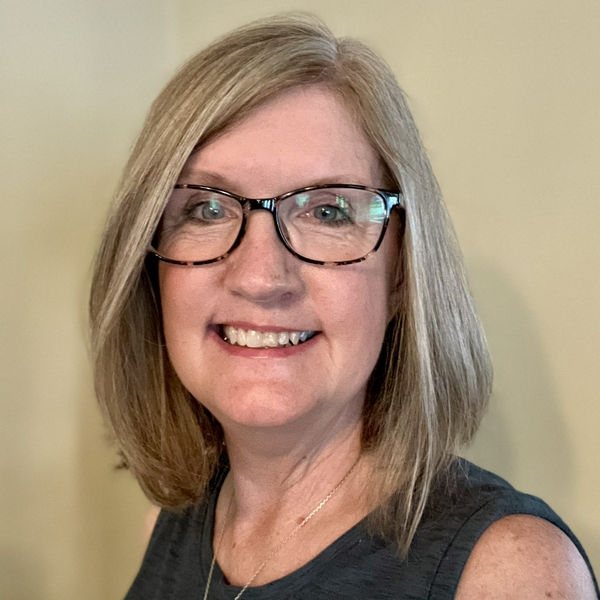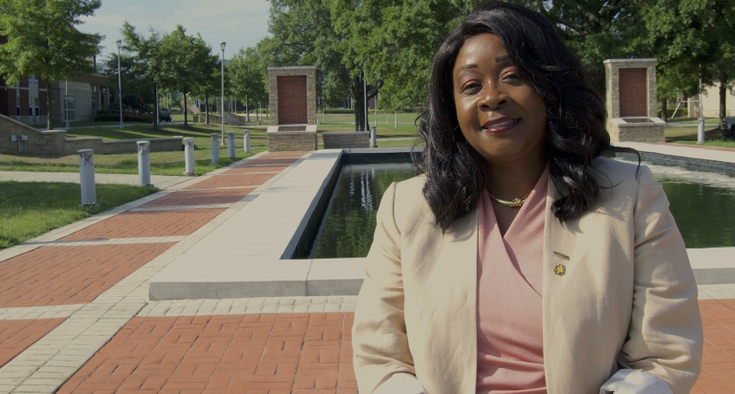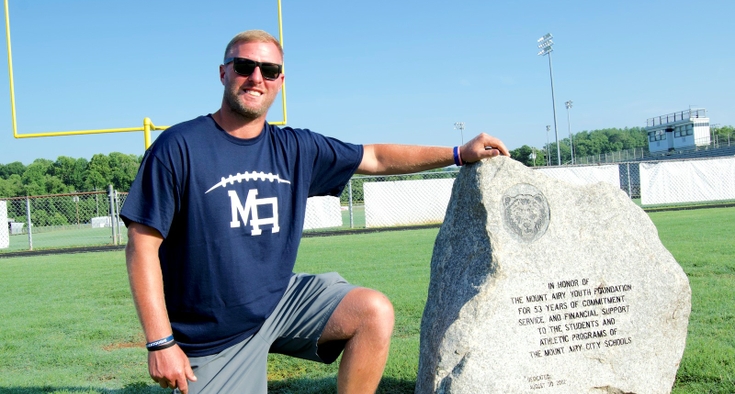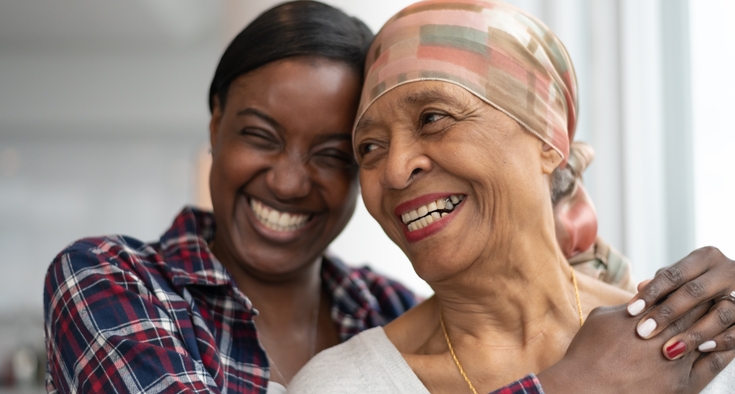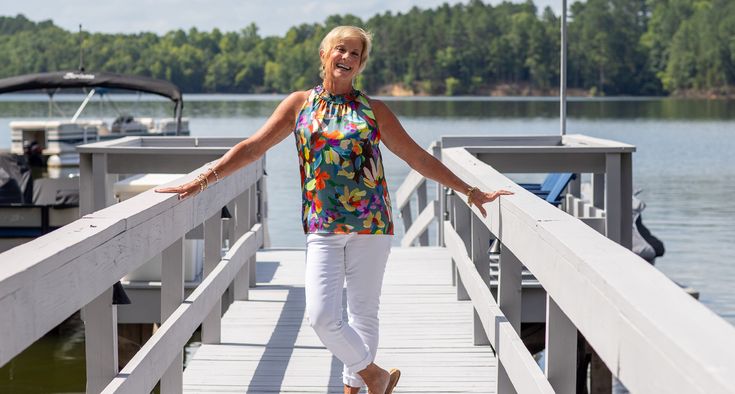While making high-powered deals from the C-suite at Bank of America, Cathy Bessant found herself tackling the challenge of her life: A diagnosis of breast cancer.
In 2010, Bessant had a lumpectomy and then underwent months of radiation treatments at Novant Health. Years later, she remains cancer-free as she begins her new role as director of Foundation For The Carolinas, a Charlotte-based organization that supports personal and corporate philanthropy and nonprofit sustainability.
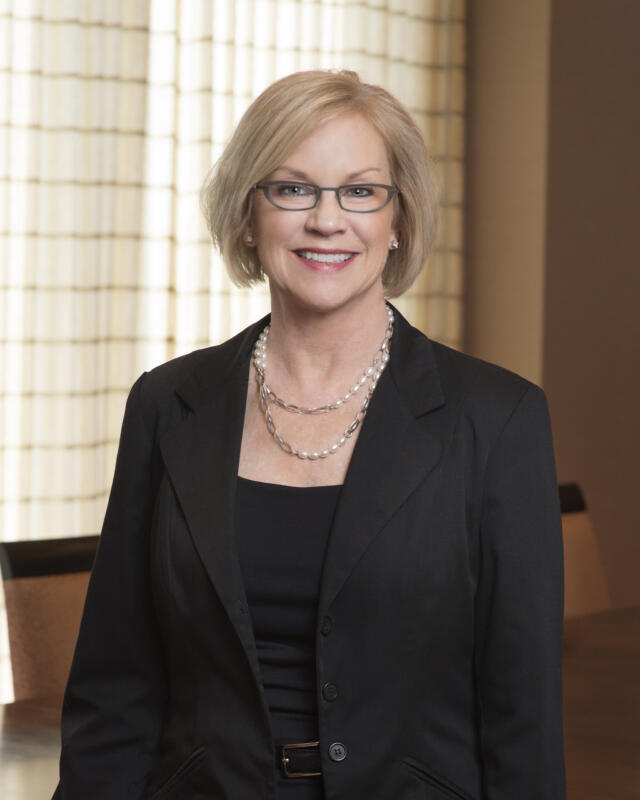
Bessant recounted how she talked with her colleagues. “I was very clear to tell them how they could help me. And I said, ‘Look, please keep me engaged. If it's too much, I will tell you. And if you want to make me worse or make me crazy, you can take the pedal off and leave me to think about things when I'd much rather have a plan and be busy.’”
Juggling treatment, frequent appointments and unexpected time off while working full time is par for the course during cancer treatment.
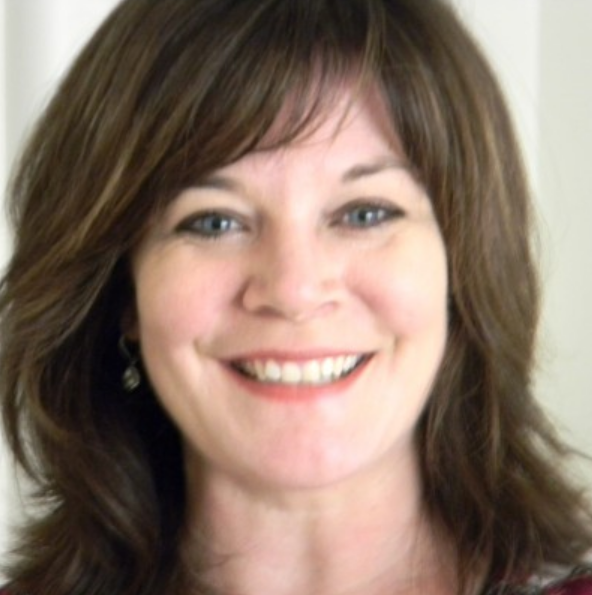
Lisa Hamilton, a clinical nurse navigator at Novant Health Cancer Institute - Ballantyne, helps working women with the myriad appointments and checkups alongside the demands of families and a full-time job. Learned from her 25 years of experience as an oncology nurse and six years as a cancer nurse navigator, Hamilton offers the following guidance.
Empathetic care from dedicated cancer specialists.
Helping workers in their cancer journey
Most likely, you’ve worked with someone who’s undergone treatment for cancer.
The number of people ages 50 and under being diagnosed with cancer is increasing, according to a recent study published in the Journal of the American Medical Association, which means more people are being treated for cancer while maintaining careers. Higher survival rates also mean that more people are continuing treatment with drug therapy long after they are considered cancer-free.
Many worry about taking time off work at the risk of stalling their careers. But Hamilton said it’s important to ask for help when you need it. Here are some resources she recommends:
- Talk to your HR team. Human resource departments can be a great asset to figure how much time off you can get, how to manage it with supervisors and what your benefits are.
- Journal or talk to a therapist. Once women start missing work because of treatment or an unexpected complication, guilt often sets in, especially if they think they’re letting down coworkers by not carrying their share of the workload. Being honest about these feelings, whether writing them to yourself or talking to a mental health professional, can help manage them.
- Set boundaries and ask for help. Some patients also struggle to accept reassurance from coworkers who say they understand that capacity will be diminished when you’re missing office days for treatment, Hamilton said. One patient was worried that her supervisor was pulling back projects from her. Her advice? Set some boundaries and share them with coworkers you trust. “You may not need help all the time,” Hamilton said. “But when you get a diagnosis like that, and especially if you have a career and kids, it's OK to ask for help.”
- Share with coworkers you trust. Designate a coworker to hand off projects or paperwork to while you’re out of the office. A digital calendar such as Google can be shared with others who need to know. Use a digital calendar on your phone or computer to log all appointments that could be shared with trusted coworkers.
- Be vulnerable and open to the unknown. Even the hard-charging Bessant said she struggled to readjust her professional mindset after her cancer diagnosis. “You don't get to be a senior executive in a large corporation without having some small — or in my case large — degree of control orientation,” Bessant said. “And yet a cancer battle is two things: Everything is unknown and the expertise and the knowledge to fix it is completely out of my wheelhouse. So that vulnerability is real.”
- Get organized. As one patient told Hamilton, cancer is like another work project to manage. Whether it’s a giant calendar, MyChart, sticky notes or a binder, keep a master schedule in which you can triage any appointment conflicts, Hamilton advised. Create color-coded folders or labels to separate different types of paperwork like test results, bills and treatment plans. Take photos of important documents and records to have on your phone as a backup. It’s also easy to store documents on the cloud to access via phone. Ask your nurse navigator if there any templates or checklists to help stay organized.
Life after treatment
For many of Hamilton's patients, the challenges don't end when treatment does. Worries about recurrence remain, often accompanied by lingering chemo fog, often referred to as chemo brain. You’re transitioning out of one stressful chapter of your life, but you may have an inability to figure out the next act, Hamilton said.
“You have been through an emotional and physically challenging time, and it can be a shock to your system,” Hamilton said. Returning full time to the workplace might require an adjustment as well.
That’s where programs at the Novant Health Cancer Institute Kemp Bessant Support Center can help. Counseling, support groups, nutritional advice and referrals to Novant Health’s other integrative programs can help women who feel they still need to turn to someone long after treatment has ended.
“I want women to try and regain a sense of normal in their life but also recognize that things will probably feel a little different,” Hamilton said.
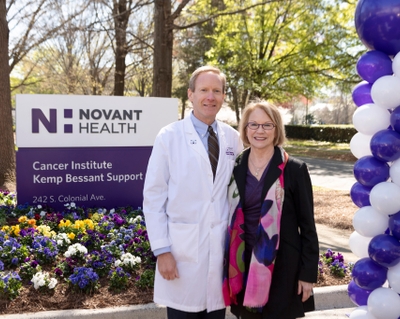
Paying it forward
Cathy Bessant was so grateful for the care from her health care team that Bank of America donated $1 million in her name through the Novant Health Presbyterian Medical Center Foundation to establish the Catherine P. Bessant Endowed Chair for Breast Health. As an extension of the gift and in recognition of Bessant, her name has been added to the Charlotte center offering programs and assistance for cancer patients and patient families. That center is now called the Novant Health Cancer Institute Kemp Bessant Support Center.
Gifts through any one of the six Novant Health regional foundations will help accelerate, expand and enhance lifesaving care for patients. If you’re interested in making your own impact, where 100% of your gift will support the program of your interest, visit SupportNovantHealth.org/Give-Where-You-Live to learn more.




